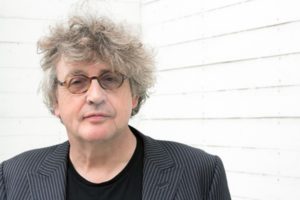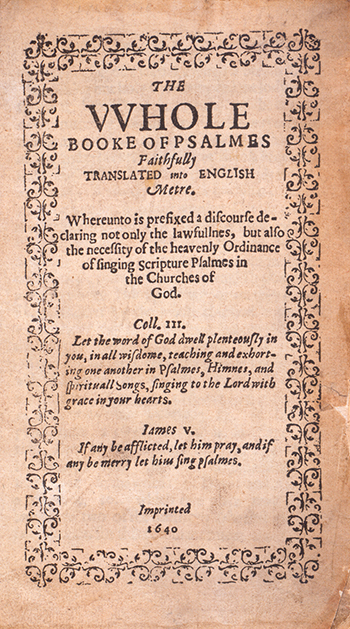A series of informal, intimate talks given by literary and cultural luminaries, In Conversation with the Rosenbach delves into fascinating histories, intellectual curiosities, and inspiring ideas. Each program offers the audience a chance to join the conversation after the talk and share their own thoughts and questions. Join us April 11 to hear poet and editor Paul Muldoon read from his most recent collection.

Rosenblog: We recently heard that you will step down as poetry editor for The New Yorker next fall. What comes next for you?
Paul Muldoon: I’ve still got a few other jobs. I’ll continue to teach at Princeton, where I’ve worked for thirty years. And I have a few book projects I should attend to. The New Yorker was a lot of fun but it’s one of those positions in which one really shouldn’t spend more than a decade. A change of hand on the tiller, a fresh perspective, is good for everyone.
RB: What was the process of selecting poems for Poems 1968-2014 like for you?
PM: It was something I did quickly. I decided to restrict myself to 5 poems from each of the 12 full-length collections I’ve published. So I took a quick swing through and ticked off the ones I though were strongest — or least weak, perhaps? The book has 60 poems all told and I think that’s a manageable volume physically. I want people to be able to read it without a wrist support!
RB: A December episode of your Poetry Podcast explored the surprising process of fact-checking poems, leading to some humorous anecdotes about scientific facts reported incorrectly in poems. But since the concept of “fact” has received so much discussion in recent months, has this changed the way you view the role of facts in poetry?
PM: There are all sorts of ways of getting at, or to, the truth. Gulliver’s Travels is full of truth, yet none of it is true. What we’re up against societally right now is another matter. We are being fed downright lies. And we have to stand up to them.
RB: We love music/poetry collaborations here at the Rosenbach, so we were intrigued by your book of lyrics, The Word on the Street. How does music inform the rest of your body of work?
PM: I love trying to write song lyrics as well as poems. It’s just so much fun. It keeps me very happy from day to day.
RB: What’s your favorite book or object at the Rosenbach?
PM: I suppose that I should say the manuscript of Ulysses, written by my fellow Irishman, whom I revere. But I’ll mention the Bay Psalm Hymn Book instead, since it has proven such a great resource for everyone from Emily Dickinson to the dear departed Leonard Cohen.

